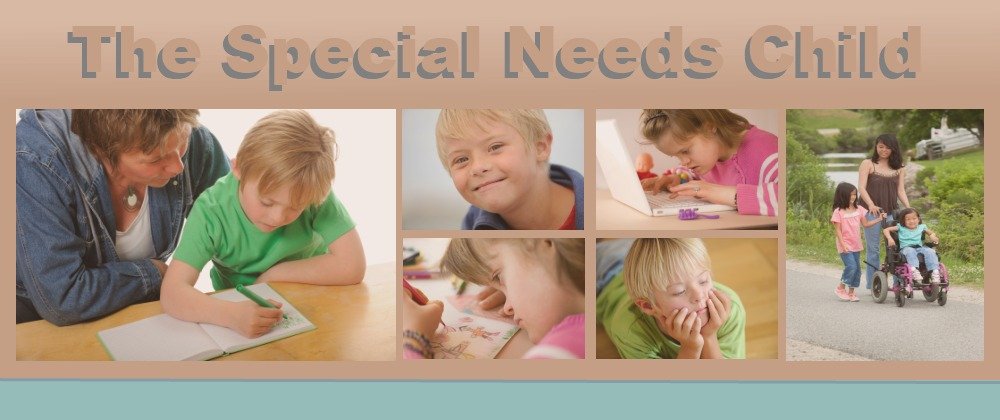|
IMPROVING BEHAVIOUR IN YOUR
SPECIAL NEEDS CHILD
 Improving behaviour in your child, may seem almost impossible to achieve,especially when you are a new parent.
Improving behaviour in your child, may seem almost impossible to achieve,especially when you are a new parent.
As new parents, we start out parenting our children, as we where parented, and want our children to react the same way as we did.
However, children with special needs are likely to throw us a curve ball, always when we least expect it, If the tried-and-tested ways of your mother
don't work for your children, then it's time to make a change.
The following strategies may go against what you've always been led to believed about child-rearing, but exceptional
children require exceptional ingenuity when improving behaviour rules and routines.
- Behaviour analysis is a start
Start with the basics of behaviour analysis. Who is responsible? When, where and why did it happen? Make sure that you have all the information
and make sure the punishment fits the crime
- Use a behaviour chart
You may be right in assuming that your child wont understand, follow or care about a chart about improving behaviour. If you thinking about using a traditional
chore-for-reward system, you may be right. This is where you need to be creative, and come up with a chart that will give your child a reason to change
his behaviour. You can start with a basic chart and then tailor it to match your child's needs and wants.
- Choose you battles
"Why does everything have to an argument?" That is something that you may have asked your child a million times, but it's a question worth asking yourself, too:
"Why does everything have to be a fight?" Is every battle you choose worth it? Think carefully about the situation before making a big issue of it.
Ultimately, you may find that keeping the peace is more important than enforcing the law, this time!
- Count to ten
Counting to 3 may work for some kids, but children with special needs may need some extra time to change their behaviour.
Forcing the issue with a quick count to three will likely end in a bad mood and worse behaviour - from you and your child.
Giving your child a little extra time, lets both of you have more control over the situation and your child's behaviour will improve,
thats a good thing.
- Keep a "bag of trick"
Keep a bag of inexpensive goodies and use this to amuse, bribe, comfort or distract your child. keep filling the bag with new toys, and you will be surprised
what a difference it can make, turning a wining, uncooperative child into funny, happy and contented one. Your bag of tricks will come in handy on long
drives and long waits at a doctors office and help in improving behaviour dramatically.
- Set achievable goals
Being ambitious for your child or having high hopes is nota bad thing. But be careful not to set the bar to high for your child on a regular basis, with
goals that they cannot achieve. These create experiences of constant failure, fear and frustration that are not good for your child's self esteem.
Rather arrange successes, by keeping your goals realistic, and then build on those successes to a level that your child can get to.
- Keep track of changes
Change, especially if it is unplanned can play havoc with your special needs child's behaviour, and also for you as parents. If at all possible, plan for the
changes that you know are going to happen, and prepare your child before hand.
- Good communications
Clarity is what all special needs children need when spoken to. Use simple language, concrete rules and direct conversations at all times.
Don't expect your child to understand you when you are sarcastic, use body language or figures of speech to lay down the law at home. What you can expect is your
child's behaviour becoming very unacceptable, so take a good look at how you talk to your child, and keep good communication channels open. Failure to communicate
can cause major set backs in your child's behaviour.
- Time-out Spots
Time-out
can be very effective tool for modifying your child's behaviour, especially in children with special needs. Again, you are going to have to be
creative, in where you send your child. Dont send your child to his room, if that is where he wants to be in any case, then his room is not a good choice
as a time-out
time-out spot
when you are not at home. Consistency is the key here, so find a "spot" that can be used no matter where you are, and that works for your
child.
- Keep looking for better ways
 No two children, parents or families are the same, so no behaviour plan will work for everyone.
No two children, parents or families are the same, so no behaviour plan will work for everyone.
What works for your child now, may not work later
as he gets older.
Reading parenting books that deal specifically with behaviour issues can bring you a constant fresh supply of ideas and strategies.
It is up to you to find the best ways to deal with your child's behaviour and find ways of dealing with your very special and unique child.
Recommended Reading:
Improving Behaviour
Return from Improving behaviour back to Home page
Return from Improving behaviour back to Behaviour problems
Rules and routines
|
|

Sign up here
to receive
"The Cool Calm Special Needs Mom"
eBook
**FREE**
-STAY UPDATED-
With
"The Special Needs Child eZine"
Our Monthly Newsletter!
|
|
|

|
|

|



 Improving behaviour in your child, may seem almost impossible to achieve,especially when you are a new parent.
Improving behaviour in your child, may seem almost impossible to achieve,especially when you are a new parent.
 No two children, parents or families are the same, so no behaviour plan will work for everyone.
No two children, parents or families are the same, so no behaviour plan will work for everyone.





